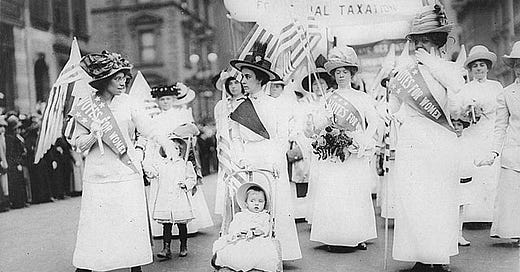My new book, Storying Silence: A Guide to Restoring Voice, Reclaiming Autonomy and Sovereignty, will be released this September. Initially, it was designed as a workbook to help women identify and challenge the systems that have kept us silent and dependent. A guide for women to write our way out of the silent corner we’ve been inhabiting for generations. But as I neared completion, the world shifted: Roe v. Wade was overturned, voting rights were threatened, and, just as I finished the final chapter, a convicted felon—guilty of sexual assault—was elected to lead the nation. The message to women was unmistakable: we do not matter.
Yet, beyond election strategy and political debates, another truth surfaced—one that, as a writer and a white woman, I had to face. Part of unsilencing ourselves is coming to terms with the truth that we’ve been both silenced and complicit in the silencing of Black women, Indigenous women, and other women of color. For centuries, white feminism has operated within a framework that benefits us at the expense of others. We must own this. We have been told we are vulnerable and that our protection depends on upholding systems rooted in white supremacy. But at what cost?
Weaponizing White Womanhood
History repeats itself. When Ida B. Wells fought for Black women’s inclusion in the suffrage movement, she faced open hostility—not just from patriarchal forces but from white feminists like Frances Willard, who perpetuated racist narratives. Willard, who was also trying to advance her work as a leader in the Temperance movement, appealed to southern women by demonizing Black men, using words that amounted to fearmongering about “dark-faced mobs.” Her cries became part of the cultural DNA of white women, ingraining the false belief that our safety depends on racial hierarchies. This myth continues today, leading to disproportionate policing, wrongful convictions, and exclusionary policies that harm communities of color while preserving white women’s perceived purity.
Let’s be honest: white women are most often harmed by their intimate partners, yet the myth of Black men as threats persists, fueling surveillance and criminalization. We must confront how our identities have been weaponized and how we have participated—whether actively or passively—in the oppression of others.
A Reckoning and A Call to Action
White feminism has long framed itself as liberation, but without intersectionality, without acknowledging the way silence is imposed unevenly—based on both gender and race— it simply reinforces oppressive structures. If we fail to see this, we protect the very systems that have silenced all of us—especially Black women, Indigenous women, and other marginalized voices.
We cannot continue to be objects within a system that reduces us to symbols of white supremacy. Part of the work of unsilencing ourselves involves dismantling the pedestal we’ve been placed upon, challenging our own complicity, and listening—without defensiveness, without fragility, but with the determination to do better. It’s time to name the intersection of external oppression and internal complicity that has unfairly disadvantaged our sisters. We can do this. We must do this.
Let me be clear. I’m not going to sugar-coat my message or use soft language to explain. White womanhood has been used as a tool of oppression for far too long. As white women we have experienced a core betrayal, based on a thin promise of protection from a danger that doesn’t exist. We’ve been taught to perform compliance while maintaining power. Yes. Power. We've been groomed as enforcers of white supremacy, taught a truth that demands our collusion between white supremacy and the structures that maintain it. Now is the time to break our silence—not just about our experience of being silenced, but about the harm we have perpetuated.
My book began as a workbook for women seeking to reclaim their voices. Now, it is also a demand for accountability. I expect criticism, and I welcome it—not as an attack, but as an opportunity to grow. If we truly seek justice, we must stop shielding ourselves behind performance of feminism and face the discomfort of honest reflection.
If what I’ve written feels too harsh, I’d invite you to ask not, “Why is she saying this,” but “Why did I need it softened in the first place?” I hope you’ll join me on this important journey at a critical time in our history. If you choose to read my book, I hope you’ll see my fierce hope that you join me in refusing to provide comfort for the powerful, while calling for the liberation of the silenced. All of the silenced.







I look forward to reading your book.
As a woman of color, a Latina living in the Borderlands of the United States, we brown women have been silenced and viewed as "irrevelant." We must understand the forces of colonialism and how we have endured post-colonial oppression in academia, in the workplace and in everyday interactions. We do have important voices and stories to tell about what it means to be an oppressed woman as many of us have undergone the process of "conscientization." It is time for all women to educate one another in this process. We cannot be victims nor be complicit in maintaining the status quo. I thank you for your workbook!